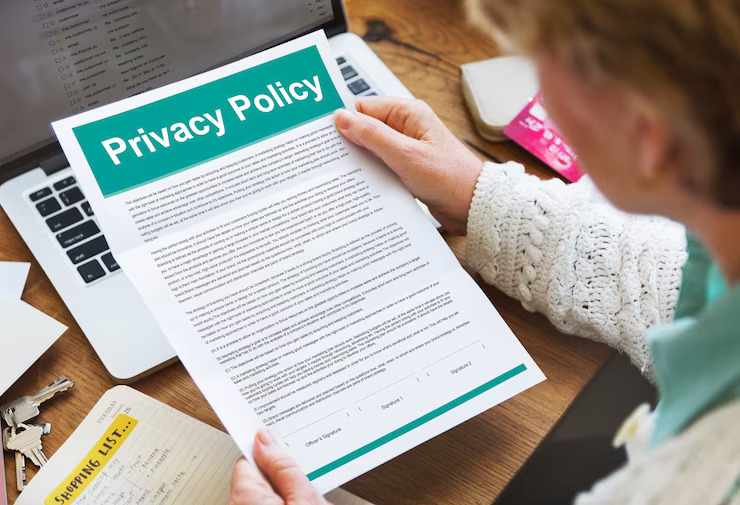Think of insurance as a safety blanket. It’s there to help you out when something unexpected and bad happens, like a car crash, getting sick, or your stuff getting damaged. To have this safety blanket, you need to give soame money, called a premium, to an insurance company. In exchange, they promise to give you money if one of those bad things that your safety blanket covers actually happens to you.
However, getting your insurance claim approved can sometimes be a bit tricky. Insurance companies have specific rules and requirements that you need to follow to make sure your claim gets approved. In this article, we will discuss how you can ensure your insurance claim gets approved without any hiccups.
1. Understand Your Insurance Policy

The first step to ensuring your insurance claim gets approved is to understand your insurance policy thoroughly. Your policy is a contract between you and the insurance company, and it outlines what is covered, what is not covered, and the terms and conditions you need to follow.
Here are some key things to look for in your policy:
- Coverage limits: Know how much coverage you have for different types of claims, such as medical expenses, property damage, or liability.
- Exclusions: Understand what is not covered by your policy. This could include pre-existing conditions, certain types of accidents, or specific events.
- Deductibles: Find out how much you need to pay out of your pocket before your insurance coverage kicks in.
- Claim process: Familiarize yourself with the steps you need to follow when making a claim, including deadlines and required documentation.
2. Report The Incident Promptly
Once an incident that is covered by your insurance policy occurs, it’s crucial to report it to your insurance company as soon as possible. Most insurance companies have a time limit for filing claims, and if you miss it, your claim may be denied.
When reporting an incident, make sure to offer all of the important information, along with the date, time, vicinity, and a description of what befell. The more data you could offer, the smoother the claims manner may be.
3. Document Everything

To support your insurance claim, document everything related to the incident. This includes taking photos, collecting witness statements, and keeping receipts for any expenses incurred.
For example, if you’re making a car insurance claim after an accident, take pictures of the damage, exchange information with the other driver, and get statements from any witnesses. If you’re making a health insurance claim, keep records of your medical bills, prescriptions, and doctor’s notes.
4. Be Honest And Accurate
Honesty is essential when making an insurance claim. Providing false information or exaggerating the extent of your loss can lead to claim denial and even legal consequences.
When filling out claim forms or speaking with insurance adjusters, be truthful and accurate in your statements. If you’re not sure about something, it’s better to say so rather than guessing or making assumptions.
5. Follow The Claims Process
Each coverage organization has its own claims technique, so it is important to comply with their instructions carefully. This might also encompass submitting bureaucracy, offering extra documentation, or assembly with an adjuster. Failure to comply with the manner can result in delays or denials.
6. Keep A Record Of Communications
Throughout the claims process, keep a record of all communications with your insurance company. This includes emails, letters, and phone call details. Having a documented history of your interactions can be valuable if any disputes arise.
7. Review And Appeal If Necessary

If your insurance claim is denied, don’t give up right away. Review the denial letter carefully to understand why it was denied. It might be due to a misunderstanding or missing information. If you believe the denial is unjust, you have the right to appeal the decision.
To appeal a denied claim, contact your coverage agency and offer any extra data or proof that helps your case. You may also need to are looking for criminal advice or touch your country’s insurance regulatory authority for assistance.
8. Seek Professional Help
Sometimes, insurance claims may be complicated, mainly while managing massive losses or disputes with the coverage business enterprise. In such instances, it could be useful to are seeking for professional assist.
Consider consulting with an insurance claims attorney or a public adjuster. These professionals can guide you through the claims process, negotiate with the insurance company on your behalf, and increase your chances of a successful outcome.
Conclusion
Ensuring your insurance claim gets approved involves understanding your policy, reporting incidents promptly, documenting everything, being honest and accurate, following the claims process, keeping records, reviewing and appealing denials if necessary, and seeking professional help when needed. By following these steps, you can navigate the insurance claims process with confidence and increase your chances of a favorable outcome when you need it most. Remember that insurance is there to help you in times of need, so don’t hesitate to use it when you have a valid claim.
Also Refer : How To Spot And Avoid Insurance Scams?
FAQs
1. How long do I have to file an insurance claim?
Most insurance policies have specific timeframes for filing claims. It’s crucial to check your policy documents for this information. Failing to file within the designated timeframe could result in a denied claim.
2. Will my insurance premium increase if I file a claim?
Filing a claim may lead to an increase in your insurance premium, depending on the circumstances and your policy. It’s essential to discuss the potential impact with your insurance provider before filing.
3. What should I do if my claim is denied?
If your claim is denied, you have the option to appeal the decision. Consult with your insurance company to understand the reasons for denial and follow the appeal process outlined in your policy.
4. Can I use any repair service for covered damages?
Some insurance policies may require you to use preferred repair providers. Check your policy details to see if there are any restrictions on choosing repair services.
5. Is it necessary to involve the police in all incidents?
In some cases, it’s essential to involve the police, such as in accidents or thefts. However, for minor incidents, it may not be necessary. Always consult your insurance company for guidance on when to involve law enforcement.
Source Image : Freepik.com